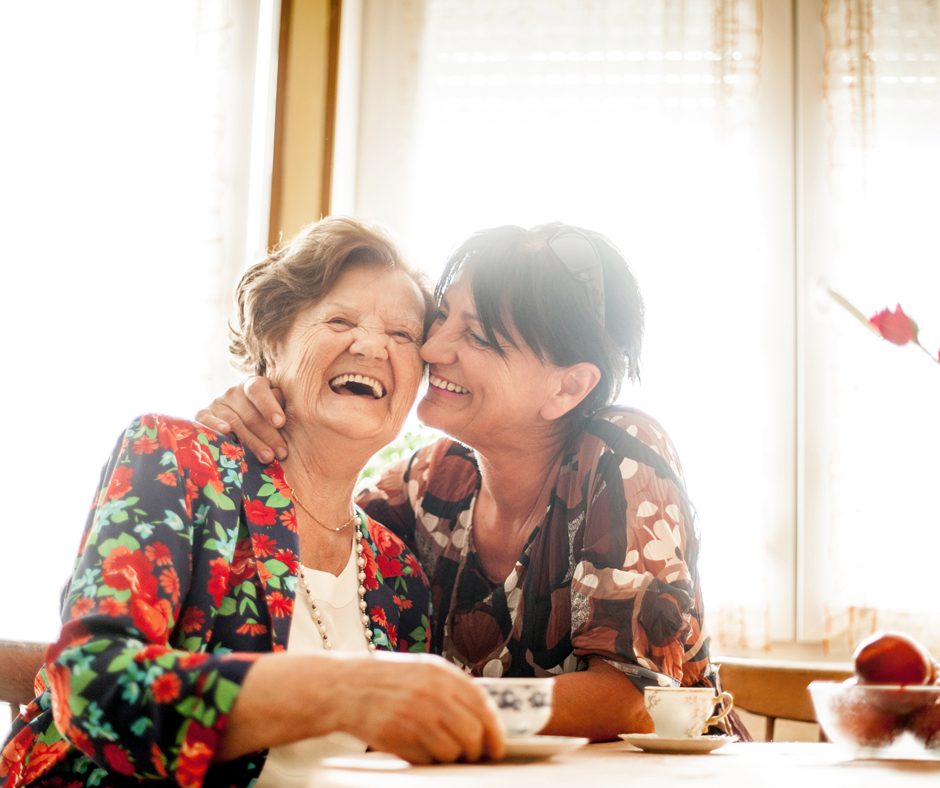What if they fall? How can I know if they’re taking care of themselves? What if something happens and I can’t be there?
These are common worries adult children have about their aging parents. And they’re the kinds of worries that make adult children look into systems for monitoring their elderly parents.
Here are some pros and cons of senior monitors so you can decide whether they’re a solution for your family.
Types of Elderly Monitoring Devices
Monitoring Cameras
Digital video surveillance cameras placed throughout the home can stream recordings online in real time, letting you check on your loved one frequently.
Pros
- If they’re showing signs of dementia and are prone to wandering, a camera system can help ensure they’re seen before going out.
- Basic DIY systems can be installed fairly easily, and you can monitor your loved one from your phone.
Cons
- You need your loved one’s consent, which may not be easy to get. They could feel it’s an invasion of their privacy.
- Simple and/or wireless elderly monitoring cameras may not give you the best resolution, and other devices can interfere with the signals.
- For the best coverage, you need multiple cameras. This could cost several thousand dollars.
Room Monitors
If your elderly loved one is confined to one room, or if you want to keep an eye on them during the night, a room monitor may be helpful.
Pros
- Many have video capabilities and night vision, so you can see how they’re doing overnight.
- Cost varies from $100 to $200, and you only need one unit.
Cons
- Some caregivers find that hearing every cough or movement is disruptive to their own sleep.
In-Home Medical Alert Systems
These systems give your loved one access to help through a wireless pendant or wristband that works with a speakerphone base station. If something happens, your loved one can push the button on the pendant, and the speakerphone calls the monitoring service for help.
Pros
- Pendant signals are very reliable and not likely to be interfered with by other devices.
- Most systems are landline-based, so monthly subscriptions are fairly affordable.
- Good for seniors who mostly stay at home.
Cons
- The pendants only work within a specified range of the base station. Many systems only have a range of about 600 feet.
- Systems designed for a wireless cellular network may be unreliable in certain parts of the house. You may need signal boosters placed around their home to ensure a strong signal.
- If your loved one accidentally pushes the call button and is too far away from the base station to let the operator know it was a mistake, emergency teams will be sent to the house — and that can get expensive. Voice extenders may be available but can cost $40 to $99 each.
Mobile Medical Alert Systems
For more active seniors, a mobile system provides easy access to help no matter where they are. A simple pendant, wristband or belt clip device has one button and will call one number when pushed. Your loved one can speak directly to monitor center operators through the device —there’s no need for a base station.
Pros
- There isn’t a range limit for the device, so your loved one can get help when they need it.
- It’s easier to avoid false alerts.
- Built-in GPS allows EMTs to find their location much easier.
Cons
- Typically require a contract, with costs ranging from $25 to $50 per month for basic plans, with additional fees for services such as fall detection.
- The device must be regularly recharged or it won’t work when they need it. Charging can take two to four hours.
- They depend on cellular networks, so if your loved one is in a rural area or other area with unreliable coverage, it could make it harder to get help.
Fall Detection Pendants
Some families opt for a fall detection service in addition to their in-home or mobile monitoring service. These pendants measure the speed and twist of the body during a fall. When a fall is detected, it automatically calls for help.
Pros
- A lot of falls are due to medical emergencies that leave a person unconscious or unable to move. Fall detection pendants can be a safety net for those at high risk of falling.
- Pendants are waterproof, which means they can be worn in the shower (a common place for falling.)
Cons
- Some devices are so sensitive they give false alarms when the wearer is merely sitting down.
- Pendants are bigger and heavier than other devices due to the internal sensors.
- Typically add $5 to $10 per month to the monitoring subscription.
Medical Alert Tracking Systems
These are similar to in-home and mobile systems but add sensors and smartphone apps to help you keep track of your loved one. Some systems give you alerts when your loved one deviates from their normal routine or leaves the house.
Pros
- Can give you additional peace of mind.
- Often recommended for someone in the early stages of dementia.
- Lets you keep a close eye on their day-to-day routines.
Cons
- It’s a fairly new technology, so there’s still room for improvement.
- Systems can be expensive.
At Green Hills Manor, we take your loved one’s safety seriously. Personal Care residents are surrounded by caring staff who get to know them well and who can recognize subtle changes that may indicate a health problem that needs to be addressed. Residents also have access to a 24-hour emergency call system, so there are no worries about finding timely assistance.
If you have questions about Personal Care or Green Hills Manor, fill out the Contact Us form, or give us a call at 484-577-3515.



